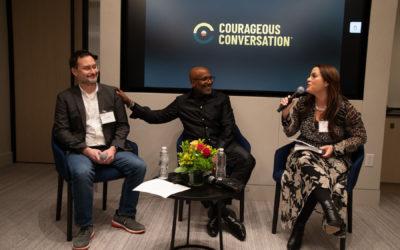By Alvin Chang—Aug. 30, 2018
I first heard about the “penalty” my junior year of high school. I was sitting in an SAT prep class because I had barely broken 1000 on my first practice SAT. During a snack break, another Asian kid in the class said to me, “You know we have to do better than even the white kids, right?”
I had never heard affirmative action framed that way — as a “bonus” for black and brown people and a “penalty” for white and especially Asian people.
At the time, I didn’t understand just how pernicious it was to think about affirmative action in those terms. Not only does that frame gloss over the reasons why race-conscious policies are necessary; it’s also the first step toward arguing that all race-conscious policies are unfair.
But I was fed a certain story about affirmative action, so when I saw this data a few years later, it only solidified this mental model:
The data is from an influential 2009 book in which two Princeton sociologists, Thomas Espenshade and Alexandra Radford, quantified how well you needed to score on your SATs to have an equal chance of admission as someone of another race. It implies that a black student who scores 1000 on her SATs would have an equal chance of admission as a white student who scores 1310 or an Asian-American student who scores 1450.
This study gave legs to a longstanding conservative argument that affirmative action is a misguided progressive policy to help black and Hispanic people while unfairly penalizing Asian and white people.
This week, the Trump administration explicitly made this argument.
In a statement supporting the Asian American groups who say Harvard University discriminates against Asians, the Justice Department wrote:
…the record evidence demonstrates that Harvard’s race-based admissions process significantly disadvantages Asian-American applicants compared to applicants of other racial groups — including both white applicants and applicants from other racial minority groups.
The Trump administration had been sniffing around this case for a while. When Trump first took office, the Justice Department dug up a two-year-old complaint against Harvard that alleges the school has quotas on how many Asian Americans it accepts. It opened an investigation into Harvard’s admissions practices, which many feared would create a chilling effect on other schools with affirmative action programs.
But the Trump administration’s latest statement is a more explicit sign that conservatives will take another swing at dismantling affirmative action — and, yet again, center the debate around Asian Americans.
This story, of racial bonuses and penalties due to affirmative action, has created an internal tension for Asian Americans: Many of us know race-conscious policies are necessary to remedy systemic racism. But we are also told that Asian Americans are penalized for those same policies.
It’s a tension white affirmative action opponents have exploited, time and again, to make their argument against race-conscious policies and to seek a broader coalition for their movement.
But if Asian Americans have long resisted being recruited to their cause, this latest campaign has a new wrinkle. “This time around, there is a wealthier, very small, and extremely vocal group of Asians who are on board — and very willing to play the part,” said Colorado State University education professor OiYan Poon, who has been studying this group.
Read more at Vox.




